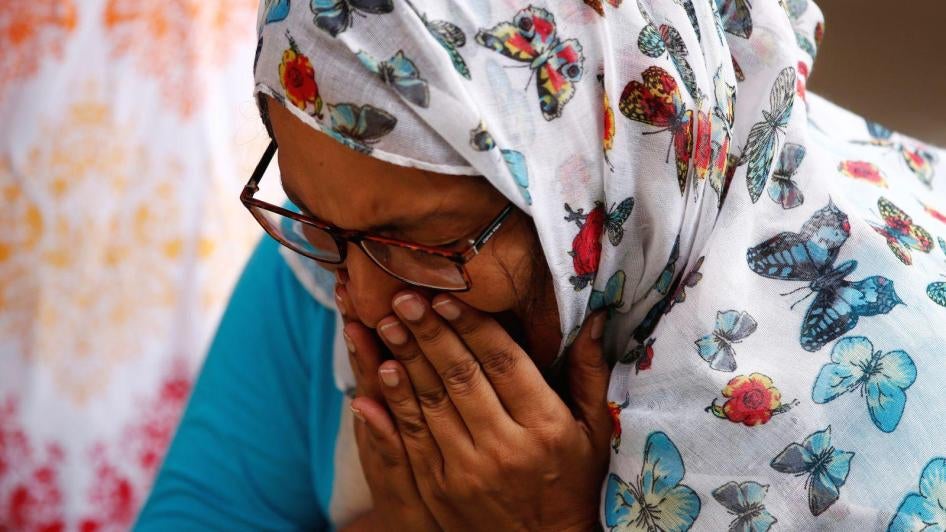Many attending the vigil at London’s Trafalgar Square following the Dhaka attack were more than a little red-eyed with despair. All of us who had worked in the country watched the grim hostage crisis play out in a city so familiar, at a restaurant many of us had frequented. By the time security forces stormed in—killing most of the gunmen—21 hostages and two police officers were dead.
At the gathering, most talked about Faraz Hossain, a young Bangladeshi man who the attackers allegedly offered freedom. He chose not to leave because they had refused to release his two friends, non-Bangladeshi women. People spoke of the choices young people make, contrasting Faraz with the attackers, also men in their twenties, who too belonged to affluent Bangladeshi families. They chose instead to carry out a massacre.
Though there is no evidence at this point that the Islamic State was involved in ordering or assisting in this latest massacre, the organization has claimed responsibility for the attack. ISIL is always happy to embrace those who say they carried out such senseless acts of violence on its behalf. The Bangladeshi government denies any links to ISIL, however. “They are members of the Jamaeytul Mujahdeen Bangladesh,” or JMB, home minister Asaduzzaman Khan has stated, referring to a domestic militant group. “They have no connections with the [Islamic State].”
Unfortunately, many in Bangladesh and abroad find it just as hard to have faith in government assertions. Bangladesh has been locked in a bitter dispute between the ruling Awami League party and two opposition groups, the Bangladesh Nationalist Party (BNP) and the Jamaat-e-Islami. Violence has broken out at opposition street protests, while the government responded with arrests, enforced disappearances, and extrajudicial killings.
Prime minister Sheikh Hasina’s government has been in denial about the possibility of international involvement in attacks over the past two years on bloggers, secularists, academics, and members of the LGBTQ community, among others, apparently unwilling to envision any threat other than that from the political opposition.
This blinkered approach has meant that the government has simply stood by as assaults by Islamist groups escalate, from machete attacks on bloggers to the latest hostage situation. It led officials to effectively blame the victims by recommending that writers engage in self-censorship in order to avoid offending extremist Muslims. The attacks became more frequent in recent months, with religious minorities targeted, as well as gay-rights activists.
Until the wife of a police officer was killed, the government did little to investigate the attacks or to identify and prosecute the perpetrators. Under international pressure following the killing of two gay-rights activists, the government randomly arrested over 15,000 people, many of them suspected supporters of the opposition, particularly madrassa-affiliated members of Jamaat’s student wing. Several of them were members of the JMB, the authorities said, a group which has been banned for more than a decade and yet is now suspected by the government to be behind the Dhaka attack.
A few of the attackers who were caught after allegedly committing the machete attacks mysteriously died while in the custody of security forces. Bangladeshi security forces are notorious for extrajudicial executions popularly known as “crossfire killings,” which they falsely claim are carried out in self-defense when security forces return the alleged suspect to the scene of the crime. Even senior members of the police admit these executions are routine, yet they have persisted under Awami League and BNP governments alike, leading to a vicious circle between the government of the day and opponents.
It is into this space that organized violence has grown and spread.
At the vigil, people wondered if the truth would ever come out. Who organized these killings? How did the killers become radicalized? And how will it end? Will the country’s political leaders finally unite to address the threat of violent crime by fundamentalists that afflicts people across party lines?
What is needed now is responsible, rights-respecting governance, proper investigations, and an end to political mudslinging. Do Sheikh Hasina and Bangladesh’s other leaders have the political courage to put their country and people ahead of their personal and party self-interest? Thus far, the indications are not encouraging.
Governments with strong ties to Bangladesh—and especially those with a history of bilateral cooperation and technical trainings, including to security forces—need to speak up now. The United States, the United Kingdom, and India, to start. It is time encourage the Bangladeshi government to adopt human rights-respecting strategies to address these terrible attacks, and to prevent future ones.
Time is running out. On July 8, three people were killed at a Bangladesh checkpoint when gunmen carrying bombs tried to attack a gathering to mark the Muslim Eid holiday.









